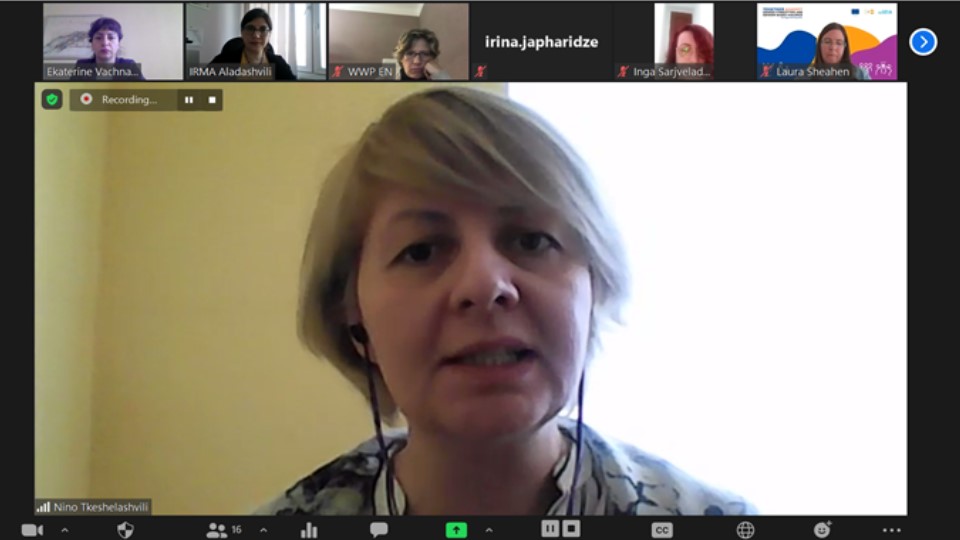Meeting initiated by UN Women on strengthening perpetrator behaviour correction programmes administered in Georgia
Date:

UN Women conducted and online meeting to present and discuss an assessment of the domestic violence behaviour correction programmes administered in Georgia vis-à-vis international standards and to learn how similar programmes in EU countries have been operating during the COVID-19 pandemic. State partners and representatives of different countries from regional projects participated in the meeting.
In the scope of the EU4Gender Equality regional project “Together against Gender Stereotypes and Gender-based Violence” that is being implemented in the Eastern Partnership countries, one of the main objectives is to increase the knowledge of and tools for social workers and civil society organizations on how to conduct evidence-based violence prevention programmes targeting perpetrators of domestic violence.
Olga Osaulenko, the programme manager of the EU joint project, remarked: “Under the joint project, we hope to further improve this programme in compliance with the Istanbul Convention and, by applying it, contribute to the prevention of violence by disrupting the pathways [available] to the perpetrators.”
Perpetrator behaviour correction programmes are important elements of an integrated and comprehensive approach to preventing and combating violence against women, which, in turn, should be part of a comprehensive national policy or strategy.
Due to the pandemic-related restrictions, the correction programmes in Georgia have been put on hold. In this regard, Dr. Alessandra Pauncz, Executive Director of the European Network for the Work with Perpetrators of Domestic Violence, shared the relevant experience and best practices of EU countries, discussed emerged challenges and presented alternative ways of programme delivery in the times of the pandemic. Dr. Pauncz remarked that: “There were not only challenges that emerged in the process of shifting the modality of the work. There were positive developments while administering the work online, such as: some men were more cooperative and willing to engage; involved men who usually were out of our reach; multi-agency work improved; internal functioning of the organization improved and we found different new ways of engaging men”. This knowledge-sharing will provide an opportunity for project partners to consider other methods of operating behaviour correction programmes for perpetrators of violence against women in Georgia. Dr. Pauncz also offered future collaboration to which UN Women and state partners expressed complete readiness.
The UN Women local consultant conducted a desk review and analysis of the Georgian perpetrator behavioural correction programmes vis-à-vis relevant international standards and best practices. Analysing and discussing this report together with partners in the probation and penitentiary systems operating perpetrator programmes will contribute to the formulation of recommendations about the strengthening, institutionalization and sustainability of the existing programmes.
The joint project is generously funded by the European Union and administered by UN Women and UNFPA.